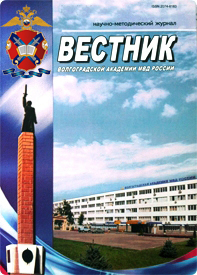The article deals with theoretical issues of criminal jurisdiction differentiation into types. The author justifies a new approach to the criminal jurisdiction typology, whereby dialectic foundations underlie in the basis of the separation of various types of procedures. The article proves that it is the dialectics that is the true ideological and methodological basis of the criminal procedure differentiation into two competing types - adversary, which becomes degraded into a winning-losing type of procedure, and investigative, evolving into the objective-issued type. The arguments explaining the origin of the adversary and investigative ideas in the criminal procedure are presented. This origin is associated with the split of art argument that took place in antiquity into two directions: dialectical and sophistical. Traces of these initial ideas are clearly shown in the modern criminal procedure. The author justifies the necessity of a new terminological notation for the types of procedures, originating from these directions. He proposed terms denoting two opposite types of procedure - a “winning-losing” type and an “objective-issued” type. The article details the dialectical properties of the objective-issued type of criminal procedure, the role of issue as the goal of proving in such model of the procedure is shown. Methodological shortcomings of the adversary type of procedure are established with the help of dialectic bases.
competitiveness, objective-issued type of criminal procedure, a typology of criminal jurisdiction, differentiation
1. Shurov A. Yu. Antichnye predposylki sostyazatel'nosti i rozyska (inkvizicionnosti) // Yuridicheskaya nauka i praktika: Vestnik Nizhegorodskoy akademii MVD Rossii. 2016. № 4 (36). S. 278-282.
2. Shurov A. Yu. Kanonicheskie i dokanonicheskie predposylki «razysknoy idei» // Problemy yuridicheskoy nauki v issledovaniyah doktorantov, ad'yunktov i soiskateley: sb. nauch. trudov / pod red. M. P. Polyakova, D. V. Nametkina. N. Novgorod: NA MVD Rossii, 2015. S. 287-299.
3. Vasil'eva E. G. Ugolovnyy process: dogmatiko-aksiologicheskoe issledovanie: monogr. M.: Yurlitinform, 2013. 584 s.
4. Ivlev Yu. V. Teoriya i praktika argumentacii: uchebnik. M.: Prospekt, 2011. 289 s.
5. O vnesenii izmeneniy v Ugolovno-processual'nyy kodeks Rossiyskoy Federacii v svyazi s vvedeniem instituta ustanovleniya ob'ektivnoy istiny po ugolovnomu delu: proekt feder. zakona. URL: http://www.sledcom.ru (data obrascheniya: 05.05.2012).









